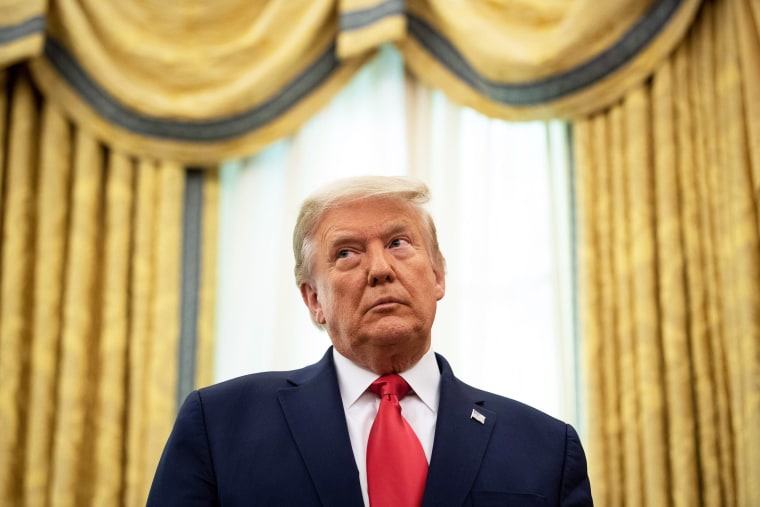By any fair measure, Bill Barr was the nation's most radical attorney general since Watergate. The Republican used federal law enforcement to serve Donald Trump's interests, directly intervening in cases of political interest to the White House. Barr's efforts were as brazen as they were corrupt.
But for the president, they weren't quite corrupt enough. Donald Trump envisioned a system of government in which he was effectively his own attorney general, and the person with the title was merely an instrument of the president's will. Trump would decide what the law said. Trump would decide who was worthy of prosecution. Trump would decide which investigations had merit. It was the attorney general's job to say, "Yes, sir," and carry out the president's wishes.
And while Barr was comfortable with elements of this dynamic, he was not without some limits. The attorney general, for example, could not prove true Trump's lies about election fraud, just as he couldn't manufacture a criminal case against the president's 2020 opponents, simply to satisfy the incumbent's desperation. As Jon Chait noted, this proved untenable.
Barr tried everything Trump wanted: He sicced his prosecutors on Trumps’ enemies and called them off on his criminal friends. But in the waning days of his corrupt reign, Barr reached the limits of his capacity as Trump’s bureaucratic functionary. His loyalty never wavered, but his powers failed him.
For Trump, this plainly wasn't acceptable. He said Barr had an opportunity to be "the greatest of all time," but in order to achieve such an exalted status, the attorney general would need to act on Trump's every partisan whim -- without regard for the law or the limits of our system of government. When Barr struggled to keep up with the president's hysterical demands, his usefulness ran its course.
It was a painful reminder: for all intents and purposes, Trump sees limited loyalty as no different from wholesale betrayal. The outgoing president expects and demands total allegiance, even when his requests are ridiculous, even when the law requires a different course.
The attorney general isn't alone in learning this lesson. Georgia Gov. Brian Kemp (R) positioned himself as a staunch Trump loyalist and steadfast White House ally, who has since become a villain in the president's eyes. The Washington Post had a detailed look at the conflict over the weekend:
In phone calls and conversations with allies and advisers, Trump has griped that Kemp was not pushing Georgia Secretary of State Brad Raffensperger to do more to reverse President-elect Joe Biden’s victory; that Kemp was not defending the president on television; and, perhaps most indefensible in Trump’s mind, that Kemp moved forward with certifying the results of the election. “Republicans fell into a trap by expecting Brad Raffensperger and Brian Kemp to cheat for them,” said Jordan Fuchs, a longtime Republican strategist in Georgia who is a deputy secretary of state under Raffensperger.
Trump essentially wanted the Georgia governor to fix a problem: the president lost the battleground state he expected to win, and he saw it as Kemp's job to intervene. It didn't matter that the governor was otherwise aligned with Trump; what mattered in the Oval Office was that Kemp wasn't prepared to deliver the victory the president wanted.
As was the case with Barr, Trump had no use for loyalty with caveats or limits. He barked an order -- Make my problem go away -- and when Kemp replied by explaining that compliance wasn't possible, he was an ally no more.
This dynamic even applies to institutions. It's no secret that the president has valued his partnership with Fox News, but when the network failed to meet each of his expectations, Trump began railing against it, too. Axios reported overnight:
[Trump] has been telling confidants that "people at the highest levels of Fox" have reached out to his people to try to repair the relationship but that he has no desire to do that. "He wants to make them pay," said a source who discussed Fox News with Trump in recent days.
Sure, Fox News has shown loyalty toward the outgoing president, but like Barr and Kemp, that fealty was at times incomplete, it failed to produce every outcome Trump expected the network to deliver, and for this president, that's an unforgivable transgression.
It's an updated version of the Bush Doctrine for a new era of Republican politics: either you're with Trump or you're against him, and to be with him means to be subservient to his every impulse.

